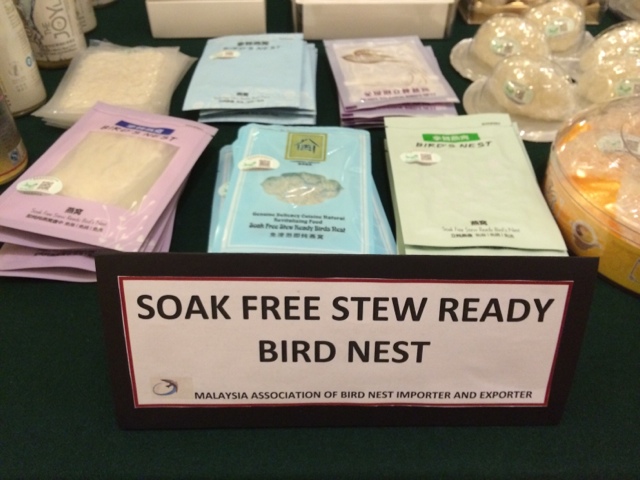Bird’s nest export prices are expected to quintuple after Malaysia inked a deal with China to ship raw edible nests to the People’s Republic.
Malaysia’s deal with China, said Malaysia’s Agriculture and Agro-Based Industry Minister Datuk Seri Ahmad Shabery Cheek, could bring about RM1.5 billion (US$340,456,560) in profits to the local bird’s nest industry, but this could also mean the price for the product for local consumption may increase.
The deal, called Protocol of Inspection, Quarantine and Veterinary Hygiene Requirements for the Exportation of Raw, Uncleaned, Edible Bird’s Nest, is everything the name suggests.
The protocol sets standards for Malaysia’s 10,000 bird’s nest farmers to sell their raw product to the ministry, which will then export it untouched to China, where it will be processed and cleaned in Qinzhou and then sold to the Chinese market.
Malaysia has a RM22 million (US$4,993,363) joint quarantine, processing and testing plant with China in the Qinzhou Industrial Park.
China banned imports of bird’s nests from Malaysia in 2011 after finding nitrate in some of the nests.
“Everything will go through us and we will make sure this will be certified under standards we agreed on with China,” Ahmad Shabery said in the Parliament lobby yesterday.
He said when China imposed the ban, the price of Malaysia’s bird’s nest dropped from RM8,000 (US$1,815.80) per nest to less than RM1,000 (US$227.20) and this put constraints on local farmers.
“This deal gives a good message with the possibility of boosting our price to RM3,000 (US$680.80) or maybe even RM5,000 (US$1,134.60),” he said.
There are about 20,000 registered bird’s nest farms in the country and each requires an investment of up to RM300,000 (US$68,091.30) from the farmers.
A hike in the price for their product would ensure the survivability of the industry, Ahmad Shabery said.
During a question-and-answer session in Parliament with Datuk Dr Shamsul Anuar Nasarah (Umno-Lenggong), Ahmad Shabery also discouraged farmers from trying to process bird’s nest themselves, as the results could be disastrous in terms of quality control.
“Now we have a platform to do everything legally that fulfils quality standards, so what happened three-years ago won’t happen again,” he said.
Malaysia produces about 300 metric tonnes of bird’s nest annually.






































